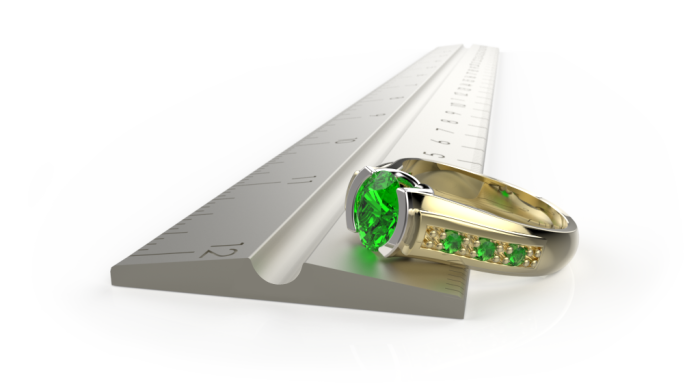Scene units control model scale, light intensity, color density, and texture mapping.
To achieve physical accuracy and better control over your material and texture settings, the scene units should match the scale of your model. For example, if you wish to render a car, you should set the scene units to meters or feet. On the other hand, if you wish to render a pair of sunglasses, you should set the scene units to centimeters or inches.

When you start with an empty scene in KeyShot, it will use non-specific scene units. The units will either be set when you import a model into the scene or when you manually set/change the scene units.
Changing the Scene Units
1. To change the model units, go to Edit > Set Scene Units and choose the new unit.
2. Select one of the two options: Keep Scene Size or Scale Scene.
Keep Scene Size
Applies the proper unit-conversion multiplier to your model and the KeyShot environment. When you convert scene units, say from centimeter to millimeter, you are telling KeyShot to make your 1 centimeter model into a 10 millimeter model. Yes, mathematically they are both equivalent to each other. However, in KeyShot your model will occupy ten times as much space as it did before. Use this option when you wish to correct model size, light intensity, color density in glass, or your camera distance slider.
Scale Scene
Re-calibrates texture mapping on your model. When you correlate scene units, say from centimeter to millimeter, you are telling texture maps that one centimeter along your model is now treated as one millimeter along your model. Your model will keep its size, but texture images will re-size according to the new scale. Use this option when you wish to correct texture units.


